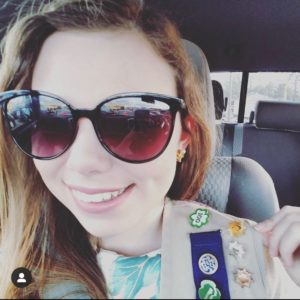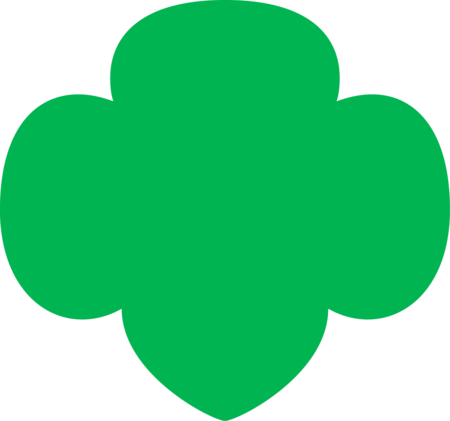by Lily Jaremski
To the Girl Scout Seniors and Ambassadors out there: are you considering working towards your Gold Award? There’s nothing quite like achieving this highest honor!
But getting there takes a great deal of work and perseverance– most girls work on their Take Action Projects for one to two years (you can go at your own pace for the required 80 volunteer hours). The first few steps of brainstorming and planning your project are vital. You’ll face tough questions: What’s a need in my community? How can I contribute my talent, skills, and drive towards helping this issue?
Here’s a first-hand account of planning a Gold Award Project that aligns with your passions.
 My biggest piece of advice to Girl Scouts looking to start their Gold Award Project is simple: whatever your project is, you have to care about it.
My biggest piece of advice to Girl Scouts looking to start their Gold Award Project is simple: whatever your project is, you have to care about it.
When I was a junior in high school and a newly minted Girl Scout Ambassador, I began working on my Gold Award Project. I came up with a brilliant idea: I would create a musical about healthy eating, then present it for free at the local library. I know, it sounds like a lot of work for a teen to take on, right? But I knew I had talented friends and mentors who could and would lend me their talents. Besides, it combined my two passions of cooking and musical theatre!
The core issue with my project was not that it was too daunting of a task. I was known for going above and beyond expectations. I had written skits and song parodies and co-directed productions before – I was qualified! The issue with my project was that I just didn’t care about it.
Don’t get me wrong, I really cared about cooking, and I really cared about theatre. I just couldn’t figure out why I wasn’t motivated to get started on my awesome, innovative project. And then it clicked – I had breezed right past step 2 of the Gold Award Toolkit: Investigate. Rather than looking at my passions from a distance and deciding on a project that sounded fun, I needed to investigate the deeper issues at play. This is a common issue faced by today’s changemakers – too often, we think we know what a group of people need, and we try to offer services instead of asking whether they are wanted.
If I had looked at the existing need in these areas, I might have created a project to educate people on how to create simple, inexpensive meals or fostered a love of the arts in young students. But as it stood, a musical about healthy eating just didn’t get me motivated to finish my project. No one was really asking for it, and so I didn’t feel a drive to deliver.
My Gold Award project changed a lot during the two years I actively worked on it. The pivot reflected not a decrease in my interests in cooking and theatre, but an increase in understanding of what the community’s needs were. (No one’s knocked down my door in search of the unproduced “Play with Your Food: The Musical” yet, anyways.)
The point of this anecdote is this: Don’t take the Gold Award planning steps lightly. Remember that the most important element of your Gold Award project is its sustainability. The true legacy of your Gold Award project will be how it confronts the status quo or changes people’s minds about how something should be done. In order to create this lasting, meaningful change, the first step is caring about your project.

